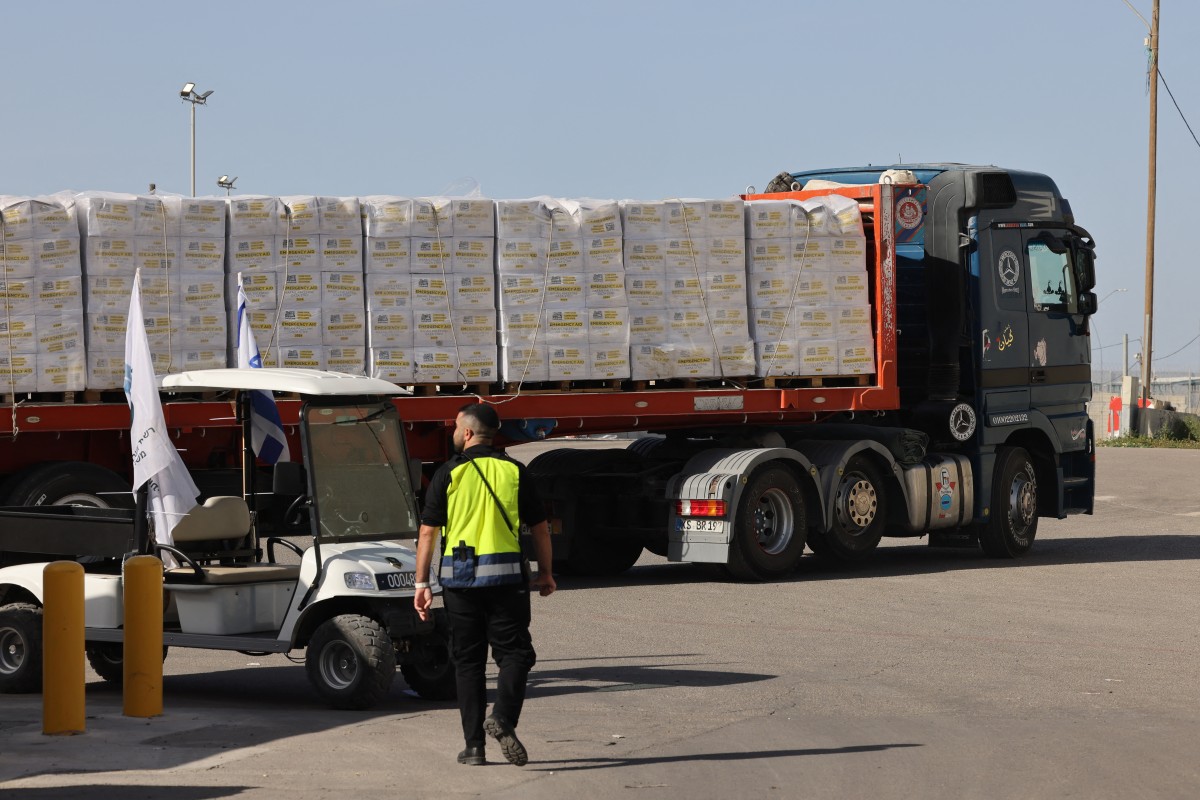Jerusalem- Health officials in Gaza reported on Monday more than 24,000 deaths in the war with Israel which has rocked the region, and militants released a video announcing the death of two Israeli hostages.
Deadly violence in the Israeli-occupied West Bank, exchanges of fire over Israel’s border with Lebanon, and strikes by United States forces and Iran-backed Yemeni rebels in the Red Sea, have all raised fears of an escalation beyond the Gaza Strip.
The war, sparked by unprecedented Hamas attacks on Israel, has created a humanitarian catastrophe for the 2.4 million people in the besieged strip, the United Nations and aid groups warn, and reduced much of the territory to rubble.
The health ministry in Gaza, ruled by Hamas since 2007, reported more than 60 “martyrs” overnight, in what the group’s media office described as “intense” Israeli bombardment.
The Hamas government media office said two hospitals, a girls’ school and “dozens” of homes were hit.
In a statement released with the video, Hamas’s armed wing the Ezzedine al-Qassam Brigades blamed “the Zionist army’s bombing” for the death of two male hostages.
The video showed a woman hostage revealing that two men she was held captive with had been killed in captivity.
Hospitals in Gaza have been hit repeatedly since the war erupted, and the World Health Organization (WHO) says most of them are no longer functioning.
The Israeli military accuses Hamas of operating out of civilian facilities or from tunnels under them, a charge the Islamist group denies.
AFPTV footage showed smoke billowing over Khan Yunis, southern Gaza’s main city, as explosions could be heard from nearby Rafah, on the territory’s southern border with Egypt.
Israel’s army said it had struck “two terrorists loading weapons into a vehicle” in Khan Yunis, raided “a Hamas command centre” there and seized weapons.
In central Israel, which has been largely spared the current violence, a suspected car ramming attack on Monday killed one woman and injured 17 other people, medics said, and police arrested two Palestinian suspects.
‘Not enough for a human being’ –
Hamas’s unprecedented October 7 attack that triggered the war resulted in about 1,140 deaths in Israel, mostly civilians, according to an AFP tally based on official Israeli figures.
The militants also seized about 250 hostages, 132 of whom Israel says remain in Gaza, including at least 25 believed to have been killed.
Vowing to destroy Hamas, Israel launched a relentless military campaign that has killed at least 24,100 people in Gaza, mostly women and children, according to the territory’s health ministry.
The UN says more than three months of fighting have displaced roughly 85 percent of Gaza’s population, crowded into shelters and struggling to get food, water, fuel and medical care.
As temperatures plunge, families living in makeshift tents in Rafah have resorted to burning plastic to ward off the chill, despite the noxious fumes.
“At night, I feel like we’re going to die from the cold,” said Haneen Adwan, 31, a mother of six children who was forced to flee from central Gaza’s Nuseirat refugee camp.
United Nations Secretary General Antonio Guterres again called for a humanitarian ceasefire in Gaza, “to ensure sufficient aid gets to where it is needed. To facilitate the release of the hostages. To tamp down the flames of wider war”, he said.
Echoing earlier warnings of a fast-approaching famine, UN agencies earlier called on Israel to allow access to its Ashdod port, north of Gaza, for critical aid deliveries.
They sought “a fundamental step change in the flow of humanitarian aid into Gaza”, arguing current levels are far below what is needed.
On Sunday, thousands of Palestinians swamped two aid trucks delivering flour and tinned food to warehouses in Gaza City, an AFP correspondent said.
“We are only eating rice, but rice is not enough for a human being,” said 53-year-old Omar al-Shandogi.
Israel has faced international pressure over surging civilian casualties in Gaza, with King Abdullah II of neighboring Jordan warning on Monday that continuing Israeli attacks could cause the conflict to expand across the region
‘Peace’ efforts –
Israeli Prime Minister Benjamin Netanyahu is under intense domestic pressure to return the hostages and account for political and security failings surrounding the October 7 attacks.
Hagit Chen said it was “hard to live, to sleep, to breathe, to eat” because she has heard nothing from her son Itay, 19, since Hamas took him captive on October 7.
“The hostages have no time. Everyone is ill and injured,” she said in Berlin, where hostage relatives met German President Frank-Walter Steinmeier on Monday.
Violence involving regional allies of Iran-backed Hamas has surged since the war began.
Attacks by Yemen’s Houthi rebels, who say they act in solidarity with Gaza, have disrupted shipping in the vital Red Sea maritime trade route, triggering strikes on scores of rebel targets last Friday by US and British forces.
A missile struck a US-owned cargo ship off Yemen on Monday, a British security agency and maritime risk company said, a day after the Houthis fired a cruise missile at an American destroyer. US warplanes shot that missile down.
Since October, violence has also surged in the Israeli-occupied West Bank, where three Palestinians were killed Monday in separate clashes with the Israeli army, the Palestinian health ministry said.
International efforts to avoid escalation will see Australia’s top diplomat Penny Wong in the region this week to support “diplomatic efforts towards a durable peace in the Middle East”, her office said.
In Turkey, a staunch supporter of the Palestinian cause, authorities have accused Israeli footballer Sagiv Jehezkel of “incitement to hate and hostility” over a goal celebration.
Jehezkel, who left the country on Monday after being sacked by his Turkish team, showed a message written on a wrist bandage, which read “100 days. 07/10” along with a Star of David.
In a testimony to the police, Jehezkel said he wanted to call attention to the hostages taken by Hamas.

